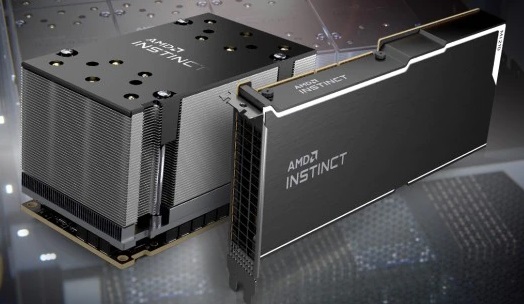
While the Chinese market still has access to the best graphics cards, acquiring AI accelerators is getting more challenging due to ever-tightening U.S. export restrictions. Intel and Nvidia have already been forced to defeature some of their AI GPUs / AI accelerators to comply with the regulations to export to China, and according to AMD, it is following suit.
"China is a very important market for us, certainly across our portfolio. As we think about certainly the accelerator market, our plan is to, of course, be fully compliant with U.S. export controls. But we do believe there's an opportunity to develop products for our customer set in China, that is looking for AI solutions, and we'll continue to work in that direction," stated AMD CEO Dr. Lisa Su during the company's latest earnings call.
Su didn't detail AMD's plan, but the chipmaker would likely have to alter some of the company's Instinct MI series accelerators, such as the latest Instinct MI300 scheduled for a Q4 launch.
Although the U.S. has placed strict export regulations on GPU exports to obstruct China's efforts in AI development, chipmakers, such as Nvidia and Intel, have overcome the obstacle by defeaturing their existing products to conform to the export controls. The current rules state that the chip-to-chip data transfer rate must not exceed 600 GB/s. However, that may change, as the U.S. government is mulling new restrictions for AI chip exports to China.
Last year, Nvidia de-optimized its A100 (Ampere) for the Chinese market, slashing the interconnect from 600 GB/s to 400 GB/s to commercialize it as the A800 in China. Not so long ago, the chipmaker ran the same play and hobbled the H100 (Hopper) GPU, turning it into a H800 for export to China. The same H800 is fetching significant sums of money in China, selling for up to $70,000 apiece. Intel wasn't left behind, either. The chipmaker abruptly canceled its Data Center GPU Max 1350 only to launch a Max 1450 for "different markets." Recently, Intel released a cut-down version of its Gaudi 2 AI accelerator for Chinese customers.
The AI boom will continue for a while, so AMD would be foolish not to hop on the wave. Take Nvidia, for instance: Thanks to its AI business, Nvidia recently became the first chipmaker to surpass the $1 trillion market cap. According to Nvidia's Q1 FY2024 financials, 60% of its revenue came from selling data center products, including accelerators for AI and HPC. It's natural that AMD would want to snatch a piece of that AI revenue.
We don't think AI will have the same gold rush effect as cryptocurrency had on graphics cards. Although we're already seeing early signs of AI companies buying up large amounts of gaming graphics cards, it likely won't turn into another graphics card shortage. AMD may be late to the AI party, but plenty of AI business still needs to be done.





